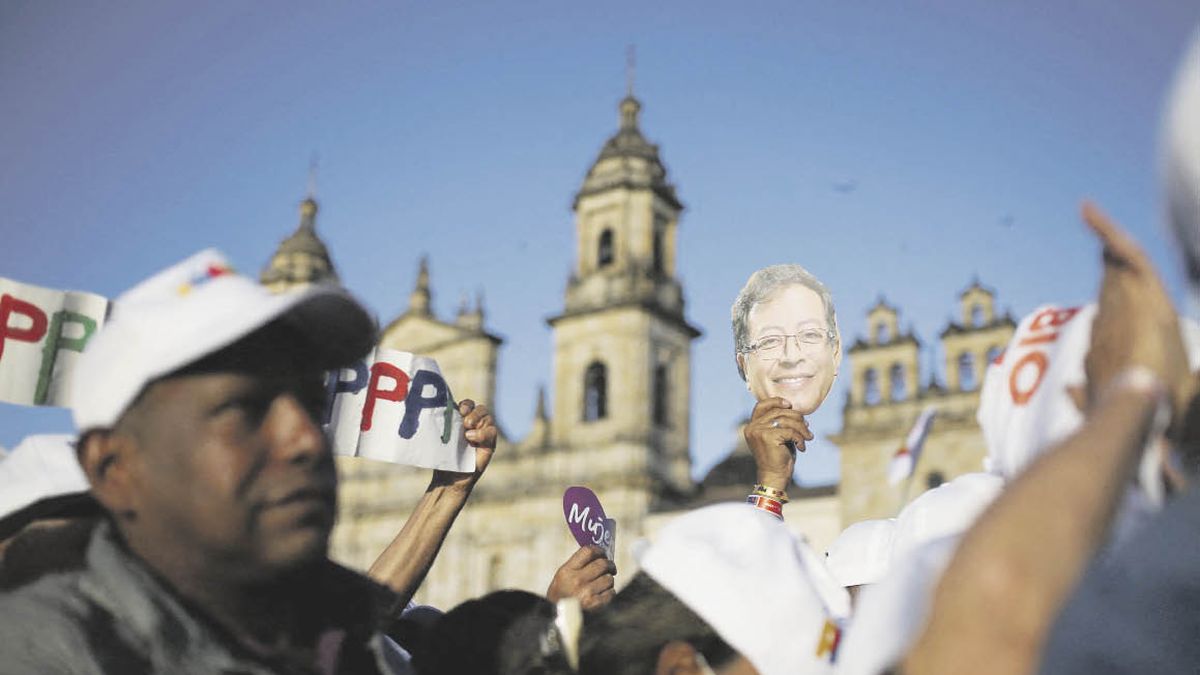In the polls, the leftist candidate Gustavo Petro remains the most advantageous to win the election, surpassing the center-right Federico ‘Fico’ Gutiérrez by about 10 points, although none would get enough votes to win in the first round, which would lead to a runoff on June 19.
Petro -former guerrilla, former mayor and current senator- enjoys the support of the poorest people, but is rejected by the wealthier sectors of the population and is viewed with suspicion by investors who perceive him as a threat to the country’s macroeconomic stability. .
Among its main proposals is an ambitious tax reform for about 5.5 additional points of the Gross Domestic Product (GDP) per year, about 13.5 billion dollars, taxing the richest to have greater spending and social investment.
It also proposes a reform of the pension system to cover even the elderly who have not contributed with half pension, as well as the end of new oil exploration contracts.
In his turn, Gutiérrez proposes changes to the tax statute and anti-evasion measures to optimize collection, reduce operating expenses, process a progressive tax reform for some 2,500 million dollars, as well as another pension and labor reform to generate more jobs and in the medium term recover the rating agency investment grade.
“It is not a continuity at all, what is proposed is that structural changes are required, deep transformations in many aspects, it is a program that proposes a transformation without implying a leap into the void”, explained Manuel Castro, programmatic coordinator of the Gutierrez campaign.
A couple of weeks before the voting, the independent candidate and former mayor of the city of Bucaramanga, Rodolfo Hernández, rebounded in the polls, coming quite close to Gutiérrez, with a strong anti-corruption message and unclear proposals but inclined to the private sector and the protection of the agricultural sector.
“We think it would be unwise to dismiss the belated push of a populist outsider in the context of the recent Latin American elections,” wrote Ben Ramsey, director of economic studies for Latin America at JPMorgan, recalling the high level of ignorance enjoyed by Pedro Castillo in Peru and Gabriel Boric in Chile during much of the electoral contest.
But none of the candidates have it easy. For analysts, although Petro faces less social resistance due to the focus of its proposals, that would not guarantee an eternal honeymoon with the population if it does not show results soon, as happened in Peru and Chile, countries in the region where they were elected presidents. from left
“The discontent is there and it will continue despite the economic recovery,” said analyst Juan Manuel Patiño of Sun Capital, referring to the Colombian case. “The labor market and so on are still lagging behind, so both Petro and ‘Fico’ Gutiérrez would eventually have to deal with this.”
At the end of 2021, 19.62 million people were recorded in monetary poverty and 6.1 million in indigence, half of the population of the South American country of 50 million inhabitants, still above the numbers prior to the pandemic.
The most important proposals will depend on the atmosphere in the Congress that will take office in July and that was divided, without guaranteeing a majority to any candidate.
“The message that the region in general is giving when one looks at Peru and Chile is that yes or yes, agreements must be sought, if not, the situation will be complicated for whoever is in government at that time, be it Petro or Gutiérrez, regardless of ideology,” Patiño assured.
The reforms can wait in the country, which would close this year with a fiscal deficit of 6.2% of GDP, some 15,000 million dollars, and which will be key to recovering the investment grade that the rating agencies withdrew last year.
Reuters Agency
Source: Ambito
David William is a talented author who has made a name for himself in the world of writing. He is a professional author who writes on a wide range of topics, from general interest to opinion news. David is currently working as a writer at 24 hours worlds where he brings his unique perspective and in-depth research to his articles, making them both informative and engaging.




